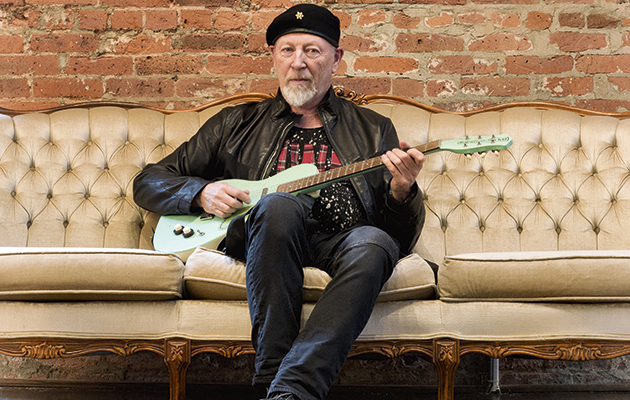Talking of happier topics, that distorted hurdy gurdy on “The Rattle Within” made me think of “Roll Over Vaughan Williams” [from 1971’s Henry The Human Fly]. Was that on your mind?
No, I’m usually trying to think forwards. But old records are surprising if you haven’t heard them for 10, 20 years. It’s usually like, ‘What was I thinking when I made this record? How could I have liked that song ever?’ I always think the future is going to be better, and I’ll be more consistent.
Which of your records are you most pleased by?
I’ve always liked Mock Tudor. [1974’s] I Want To See The Bright Lights is a good record. More recently, something like [2007’s] Sweet Warrior is good. I really like Electric and Still, too. The Fairport records stand up really well – What We Did On Our Holidays sounds really good, Unhalfbricking…
Next year is the 50th anniversary of those three amazing Fairport albums – …Holidays, Unhalfbricking and Liege & Lief.
’68, ’69, we seemed to be working all the time. We were really aware of the need to write our own material. The Beatles had come up with this new model – you write your own songs and you perform them. It had become a normal thing.
Was “Meet On The Ledge” really the first song you wrote?
Yes, probably my first solo composition.
That’s ridiculous.
Well, I think it’s ridiculous in other ways… I think it’s ridiculously naive, but we have to forgive ourselves for our naivety, especially if people want you to sing it 50 years later. I’m going to sing it this year a bit more, as it’s the 50th anniversary of recording it. I’ll do something else as well from What We Did On Our Holidays, just to show how in touch I am with anniversaries.
Fairport moved towards folk pretty early on – the current was moving that way, I suppose, but still…
We’d always been folkies. We invested in acoustic music, singer-songwriter music. We hung out in folk clubs as well as rock clubs – we’d go and see Davy Graham and Martin Carthy and Shirley Collins, but we’d also go and see Howlin’ Wolf or the Butterfield Blues Band or Hendrix. When we became a band, we wanted to be a folk-rock band, like The Byrds or The Lovin’ Spoonful, and at some point it became logical to us to play more music based on British traditions. It validated what we were doing for ourselves. Whoever you are, whatever music you play, you have to put something of who you are, of where you come from, into the music. You can be an R&B band like The Kinks, but you can write a song like “Waterloo Sunset”. When Fairport had the accident, when our drummer [Martin Lamble] was killed in ’69, there was a moment where we weren’t sure if the band was going to continue. But when we said, “We have to carry on, we’ll do it for Martin’s memory,” we decided, to solidify our intent, to do this project album we’d been talking about, of traditional music played with a rock band. No-one had done anything quite like it before, and it seemed to us a clear path. It was an exciting time, and we didn’t really want to go back to what we were doing before, so we changed our repertoire completely. I think also we didn’t want to play the music we’d played with Martin.
The story is that Ashley Hutchings left after Liege because he wanted to play even more traditional stuff.
Sandy and I thought there’d be a lot more of our own stuff blended into that. But Ashley was probably more zealous about this new traditional direction and wanted to bring more people into the band – in one version, he was going to bring three more people into the band, which would have made it an unwieldy nine-piece. I think some of us thought, ‘Woah, this is getting slightly crazy.’ So Ashley went off to form Steeleye Span, a great band, and pursue his vision.



